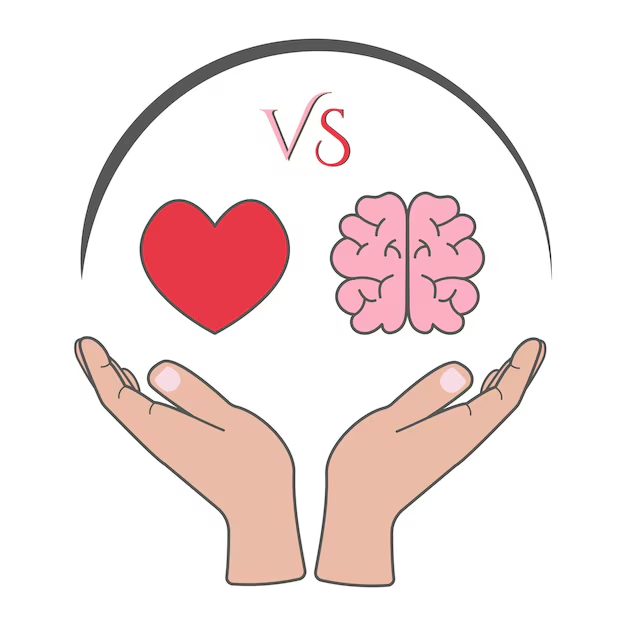Understanding the Gut-Brain Axis
The gut-brain axis is a bidirectional communication network linking the central nervous system (CNS) with the enteric nervous system (ENS), the nervous system of the gastrointestinal tract. This complex interaction involves neural, hormonal, and immunological pathways. The gut microbiome plays a significant role in this axis by influencing neurotransmitter production, immune system regulation, and even brain function.
The Players: Gut Microbiota and Neurotransmitters
Trillions of bacteria, viruses, fungi, and other microorganisms make up your gut microbiome. These microorganisms produce various substances, including neurotransmitters like serotonin, dopamine, and GABA, which are vital for mood regulation. For example, a significant portion of the body's serotonin, a neurotransmitter associated with feelings of happiness and well-being, is produced in the gut. Disruptions in the gut microbiome can therefore lead to imbalances in neurotransmitter levels, potentially contributing to mood disorders like anxiety and depression. Learn more about gut microbiota and mental health on reputable sites like the National Institute of Mental Health [NIMH].
Practical Guidance: Evaluating Your Gut Health
Assessing your gut health involves several steps. While professional testing is available, starting with self-assessment and dietary adjustments can be beneficial. Consider the following:
1. Identifying Symptoms
Common signs of an imbalanced gut microbiome include:
- Digestive issues (bloating, gas, constipation, diarrhea)
- Skin problems (eczema, acne)
- Fatigue
- Mood swings, anxiety, or depression
- Autoimmune conditions
- Food sensitivities
2. Dietary Analysis
Keep a food journal to track your diet and any associated symptoms. This can help identify potential trigger foods or dietary deficiencies that may be contributing to gut imbalances. Focus on including a diverse range of plant-based foods, fermented foods, and prebiotics in your diet.
3. Considering Professional Testing
Several types of gut health tests are available, ranging from stool tests that analyze the composition of your gut microbiome to blood tests that assess inflammation markers. While these tests can provide valuable information, it's essential to consult with a healthcare professional to interpret the results and develop a personalized treatment plan. Remember to research and choose reputable testing providers.
4. Dietary Strategies to Support Gut Health
Implementing specific dietary changes can significantly impact gut health. Consider these options:
- Increase Fiber Intake: Soluble and insoluble fiber from fruits, vegetables, and whole grains feed beneficial gut bacteria.
- Include Fermented Foods: Yogurt, kefir, sauerkraut, kimchi, and kombucha are rich in probiotics that can diversify the gut microbiome.
- Limit Processed Foods: High in sugar, unhealthy fats, and additives, processed foods can negatively impact gut bacteria.
- Stay Hydrated: Water is essential for digestion and helps maintain the balance of bacteria in the gut.
- Consider Prebiotic Foods: Onions, garlic, asparagus, bananas, and oats contain prebiotics, which nourish existing beneficial gut bacteria.
Example Dietary Plan:
A balanced diet rich in whole, unprocessed foods is the foundation of good gut health. Here's an example of a gut-friendly daily meal plan:
- Breakfast: Oatmeal with berries, nuts, and a sprinkle of flaxseeds.
- Lunch: Salad with mixed greens, grilled chicken or tofu, avocado, and a light vinaigrette dressing.
- Dinner: Baked salmon with roasted vegetables (broccoli, carrots, sweet potatoes).
- Snacks: Yogurt with a small amount of honey, a handful of almonds, or a piece of fruit.
This dietary plan focuses on nutrient-dense foods that support a healthy gut microbiome. It's crucial to remember that individual dietary needs may vary, so it's always best to consult with a healthcare professional or registered dietitian.
Long-Term Considerations for Gut Health
Maintaining good gut health is an ongoing process that requires consistent effort and lifestyle adjustments. Here are some long-term considerations:
1. Dietary Consistency
Sticking to a gut-friendly diet is crucial for long-term success. Avoid yo-yo dieting or frequent indulgence in processed foods, as these can disrupt the gut microbiome and lead to recurring symptoms. Maintaining a food journal can help track your dietary habits and identify potential triggers.
2. Stress Management
Chronic stress can negatively impact gut health by altering the gut microbiome and increasing inflammation. Incorporate stress-reducing activities into your daily routine, such as yoga, meditation, or spending time in nature. The American Psychological Association [APA] provides resources on stress management.
3. Probiotic Supplementation
While diet is the primary driver of gut health, probiotic supplements can be a useful adjunct, especially after antibiotic use or during periods of high stress. Choose a high-quality probiotic supplement with a diverse range of strains and consult with a healthcare professional to determine the appropriate dosage and duration of use.
4. Regular Exercise
Physical activity has been shown to positively influence the gut microbiome by increasing microbial diversity and promoting the growth of beneficial bacteria. Aim for at least 30 minutes of moderate-intensity exercise most days of the week.
5. Antibiotic Stewardship
Antibiotics can disrupt the gut microbiome by killing both harmful and beneficial bacteria. Use antibiotics only when necessary and under the guidance of a healthcare professional. After antibiotic use, focus on repopulating the gut with probiotics and prebiotics.
Understanding Probiotics: A Deeper Dive
Probiotics are live microorganisms that, when administered in adequate amounts, confer a health benefit on the host. They are often referred to as "good" or "helpful" bacteria because they help maintain the balance of the gut microbiome. Incorporating probiotics into your routine can significantly improve your overall gut health and, consequently, your mental well-being.
Types of Probiotics
Different strains of probiotics offer varying benefits. Some common and well-researched strains include:
- Lactobacillus: Often found in yogurt and fermented foods, Lactobacillus strains can help with diarrhea and may improve lactose digestion.
- Bifidobacterium: Commonly found in dairy products, Bifidobacterium strains can ease symptoms of irritable bowel syndrome (IBS) and other digestive disorders.
- Saccharomyces boulardii: A type of yeast probiotic that can help prevent and treat diarrhea associated with antibiotic use.
Choosing the Right Probiotic
Selecting the right probiotic supplement can be overwhelming, given the vast array of options available. Here are some factors to consider:
- Strain Specificity: Different strains offer different benefits. Research which strains are best suited for your specific needs.
- CFU Count: CFU stands for Colony Forming Units, which indicates the number of live and active microorganisms in each dose. A higher CFU count isn't always better; focus on strains that have been clinically proven to be effective at a certain dose.
- Quality and Purity: Look for reputable brands that conduct third-party testing to ensure the quality and purity of their products.
- Storage Conditions: Some probiotics require refrigeration to maintain their viability. Check the product label for storage instructions.
Incorporating Probiotics into Your Diet
Besides supplements, you can also increase your probiotic intake through food. Here are some probiotic-rich foods to consider:
- Yogurt: Look for yogurt with live and active cultures.
- Kefir: A fermented milk drink similar to yogurt but with a thinner consistency.
- Sauerkraut: Fermented cabbage that is rich in probiotics and fiber.
- Kimchi: A Korean dish made from fermented vegetables, typically cabbage and radish.
- Kombucha: A fermented tea drink with a slightly fizzy and tart flavor.
Data on Gut Health and Mental Health
| Study | Findings |
|---|---|
| "The Gut Microbiome and Brain Health" - Harvard Medical School | Highlights the link between gut bacteria and neurotransmitter production, influencing mood and cognitive function. [Harvard Health] |
| "Gut Microbiota's Effect on Mental Health: The Gut-Brain Axis" - Journal of Physiological Anthropology | Explores the role of the gut-brain axis in influencing mental health and the potential therapeutic benefits of targeting the gut microbiome. |
| "Influence of Gut Microbiota on Neurologic, Psychiatric, and Immunologic Diseases" - National Center for Biotechnology Information (NCBI) | Discusses how the gut microbiome can influence the development and progression of neurological, psychiatric, and immunological disorders. |
FAQ: Understanding Gut Health
- Q: How long does it take to improve gut health?
- A: Improvements in gut health can be noticed within a few weeks of making dietary and lifestyle changes. However, significant and lasting changes may take several months.
- Q: Can stress directly affect my gut health?
- A: Yes, chronic stress can negatively impact the gut microbiome, leading to imbalances and digestive issues.
- Q: Are all probiotic supplements created equal?
- A: No, probiotic supplements vary widely in terms of strains, CFU count, and quality. Choose reputable brands and consult with a healthcare professional.
- Q: Can I rely solely on diet to improve my gut health, or are supplements necessary?
- A: A balanced diet rich in fiber, fermented foods, and prebiotics is the foundation of good gut health. Supplements can be a useful adjunct, but should not replace a healthy diet.
- Q: What are the common signs of an unhealthy gut?
- A: Common signs include bloating, gas, constipation, diarrhea, skin problems (eczema, acne), fatigue, mood swings, anxiety, or depression.
Disclaimer: This information is for informational purposes only and should not be considered medical advice. Always consult with a healthcare professional before making any significant changes to your diet or treatment plan.
Sources
- Harvard Medical School. "The Gut Microbiome and Brain Health." Harvard Health Publishing
- American Psychological Association (APA). APA Website
- National Institute of Mental Health (NIMH). NIMH Website





